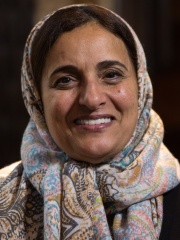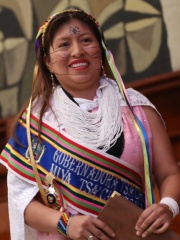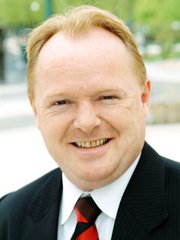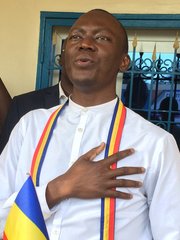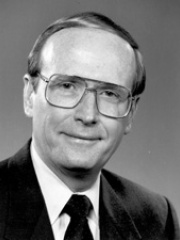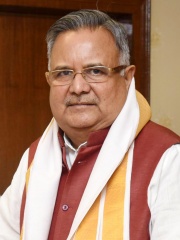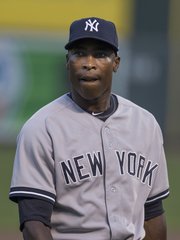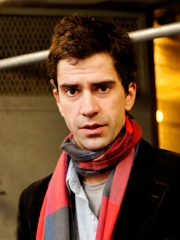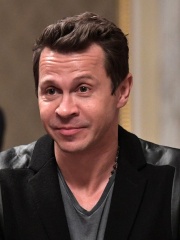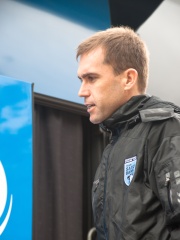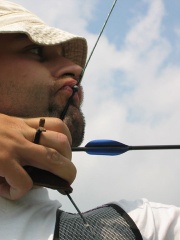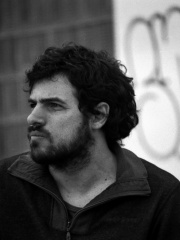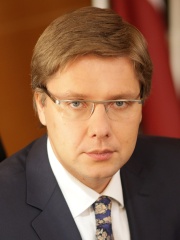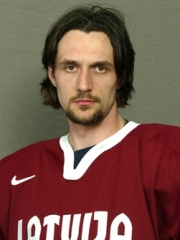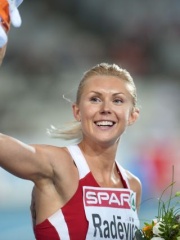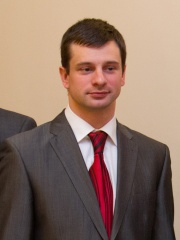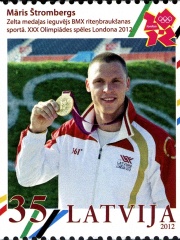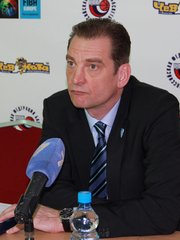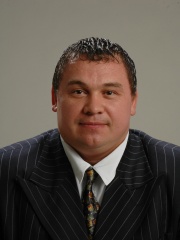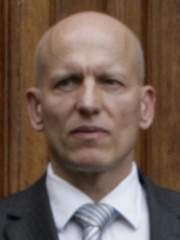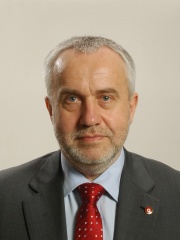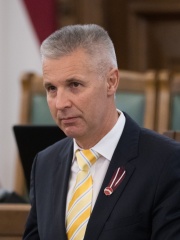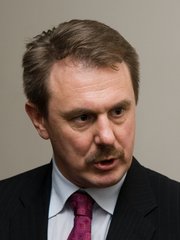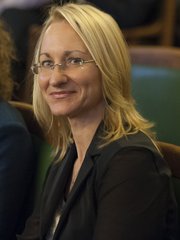Politician
Daniel Fridman
1976 - today
EN.WIKIPEDIA PAGE VIEWS (PV)
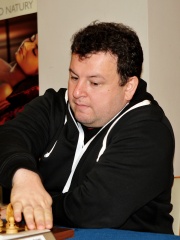
 Daniel Fridman
Daniel Fridman
His biography is available in 19 different languages on Wikipedia. Daniel Fridman is the 18,891st most popular politician (down from 18,697th in 2024), the 241st most popular biography from Latvia (up from 244th in 2019) and the 57th most popular Latvian Politician.
Memorability Metrics
Page views of Daniel Fridman by language
Among Politicians
Among politicians, Daniel Fridman ranks 18,891 out of 19,576. Before him are Danela Arsovska, Kathleen Wynne, Lubna Khalid Al Qasimi, Diana Aguavil, Karl-Heinz Brunner, and Trajko Veljanovski. After him are Per Sandberg, Michael Gove, Succès Masra, Richard Bryan, Kira Rudik, and Raman Singh.
Most Popular Politicians in Wikipedia
Go to all RankingsDanela Arsovska
1979 - Present
HPI: 45.01
Rank: 18,892
Kathleen Wynne
1953 - Present
HPI: 45.01
Rank: 18,893
Lubna Khalid Al Qasimi
1962 - Present
HPI: 45.00
Rank: 18,894
Diana Aguavil
1983 - Present
HPI: 45.00
Rank: 18,895
Karl-Heinz Brunner
1953 - Present
HPI: 45.00
Rank: 18,896
Trajko Veljanovski
1962 - Present
HPI: 44.99
Rank: 18,897
Daniel Fridman
1976 - Present
HPI: 44.99
Rank: 18,898
Per Sandberg
1960 - Present
HPI: 44.98
Rank: 18,899
Michael Gove
1967 - Present
HPI: 44.98
Rank: 18,900
Succès Masra
1983 - Present
HPI: 44.97
Rank: 18,901
Richard Bryan
1937 - Present
HPI: 44.95
Rank: 18,902
Kira Rudik
1985 - Present
HPI: 44.94
Rank: 18,903
Raman Singh
1952 - Present
HPI: 44.93
Rank: 18,904
Contemporaries
Among people born in 1976, Daniel Fridman ranks 704. Before him are Alfonso Soriano, Hamish Linklater, Mallika Sherawat, Pavel Derevyanko, Bradley McGee, and Dimosthenis Tampakos. After him are Daniel Komen, Nasir al-Wuhayshi, Michele Frangilli, Enric Duran, Yegor Titov, and Shelley Conn.
Others Born in 1976
Go to all RankingsAlfonso Soriano
BASEBALL PLAYER
1976 - Present
HPI: 45.07
Rank: 698
Hamish Linklater
ACTOR
1976 - Present
HPI: 45.06
Rank: 699
Mallika Sherawat
ACTOR
1976 - Present
HPI: 45.05
Rank: 700
Pavel Derevyanko
ACTOR
1976 - Present
HPI: 45.04
Rank: 701
Bradley McGee
CYCLIST
1976 - Present
HPI: 45.03
Rank: 702
Dimosthenis Tampakos
GYMNAST
1976 - Present
HPI: 45.01
Rank: 703
Daniel Fridman
POLITICIAN
1976 - Present
HPI: 44.99
Rank: 704
Daniel Komen
ATHLETE
1976 - Present
HPI: 44.96
Rank: 705
Nasir al-Wuhayshi
EXTREMIST
1976 - 2015
HPI: 44.96
Rank: 706
Michele Frangilli
ATHLETE
1976 - Present
HPI: 44.95
Rank: 707
Enric Duran
SOCIAL ACTIVIST
1976 - Present
HPI: 44.93
Rank: 708
Yegor Titov
SOCCER PLAYER
1976 - Present
HPI: 44.93
Rank: 709
Shelley Conn
ACTOR
1976 - Present
HPI: 44.91
Rank: 710
In Latvia
Among people born in Latvia, Daniel Fridman ranks 241 out of NaN. Before him are Ēriks Ešenvalds (1977), Alexander Yegorov (null), Nils Ušakovs (1976), Sergejs Žoltoks (1972), Ineta Radēviča (1981), and Kristaps Porziņģis (1995). After him are Anmary (1980), Martins Dukurs (1984), Māris Štrombergs (1987), Gundars Vētra (1967), Dons (1984), and Viktors Ščerbatihs (1974).
Others born in Latvia
Go to all RankingsĒriks Ešenvalds
COMPOSER
1977 - Present
HPI: 45.63
Rank: 235
Alexander Yegorov
ATHLETE
HPI: 45.56
Rank: 236
Nils Ušakovs
POLITICIAN
1976 - Present
HPI: 45.52
Rank: 237
Sergejs Žoltoks
HOCKEY PLAYER
1972 - 2004
HPI: 45.29
Rank: 238
Ineta Radēviča
ATHLETE
1981 - Present
HPI: 45.26
Rank: 239
Kristaps Porziņģis
BASKETBALL PLAYER
1995 - Present
HPI: 45.07
Rank: 240
Daniel Fridman
POLITICIAN
1976 - Present
HPI: 44.99
Rank: 241
Anmary
SINGER
1980 - Present
HPI: 44.87
Rank: 242
Martins Dukurs
POLITICIAN
1984 - Present
HPI: 44.83
Rank: 243
Māris Štrombergs
CYCLIST
1987 - Present
HPI: 44.67
Rank: 244
Gundars Vētra
BASKETBALL PLAYER
1967 - Present
HPI: 44.66
Rank: 245
Dons
SINGER
1984 - Present
HPI: 44.66
Rank: 246
Viktors Ščerbatihs
ATHLETE
1974 - Present
HPI: 44.54
Rank: 247
Among Politicians In Latvia
Among politicians born in Latvia, Daniel Fridman ranks 57. Before him are Guntars Krasts (1957), Andris Šķēle (1958), Artis Pabriks (1966), Ināra Mūrniece (1970), Ģirts Valdis Kristovskis (1962), and Nils Ušakovs (1976). After him are Martins Dukurs (1984), and Dace Melbārde (1971).
Guntars Krasts
1957 - Present
HPI: 50.40
Rank: 51
Andris Šķēle
1958 - Present
HPI: 50.38
Rank: 52
Artis Pabriks
1966 - Present
HPI: 48.75
Rank: 53
Ināra Mūrniece
1970 - Present
HPI: 47.73
Rank: 54
Ģirts Valdis Kristovskis
1962 - Present
HPI: 46.84
Rank: 55
Nils Ušakovs
1976 - Present
HPI: 45.52
Rank: 56
Daniel Fridman
1976 - Present
HPI: 44.99
Rank: 57
Martins Dukurs
1984 - Present
HPI: 44.83
Rank: 58
Dace Melbārde
1971 - Present
HPI: 43.18
Rank: 59


